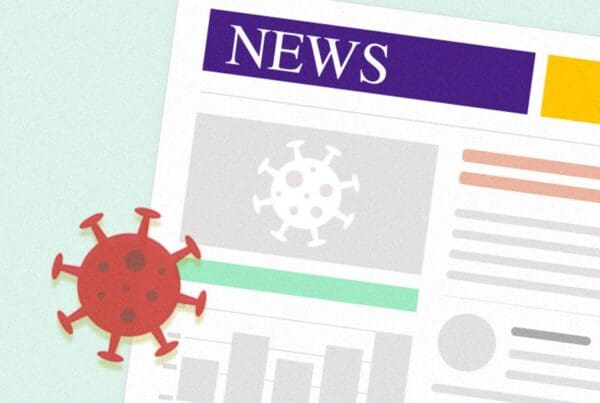Data Snapshot
UW Medicine Hospitals:

King County: The county reported 363 new positive cases and 6 new deaths on Sept. 14.
Washington: The state reported 544,899 cases and 7,037 deaths as of Sept. 13.
United States: The CDC reports 41,262,574 cases and 660,380 deaths as of Sept. 14.
Global: WHO reports 225,680,357 confirmed COVID-19 cases and 4,644,740 deaths as of Sept. 15.
Numbers update frequently, please follow links for most up-to-date numbers.
UW Medicine COVID-19 Vaccine Distribution Update
Total Vaccine Doses Administered: 364,351
As of Sept. 14, 2021.
UW Medicine in the News
KGMI-AM (Bellingham, WA): UW Medicine warns against using ivermectin to treat or prevent COVID
Featuring: Rupali Jain, PharmD, Clinical Pharmacist
“University of Washington Medicine is warning against using the anti-parasitic medication ivermectin to treat or prevent COVID-19. Clinical pharmacist Rupali Jain says this time of uncertainty has driven some people to find anything that can help. But she says ivermectin isn’t where they should turn. ‘The human use product is safe, generally, but it can interact with other medications. It can cause nausea, vomiting, diarrhea, low blood pressure and dizziness,’ says Jain. ‘So, we really want to avoid unnecessary use of this agent.’ And she says people should never take ivermectin that’s intended for animals as it’s in a very concentrated form and contains substances that haven’t been tested for humans.”
The Wall Street Journal: Biden’s Covid-19 Vaccine Mandate Further Stresses Supply of Rapid Tests
Featuring: Alex Greninger, MD, PhD, Laboratory Medicine
“If all the unvaccinated individuals decided to opt for weekly testing, it might be a stretch. And if that all comes in on Mondays, that too would be a touch more difficult from a load-balancing standpoint,’ said Alex Greninger, assistant director of the clinical virology laboratory at the University of Washington Medical Center. ‘But I’d anticipate more people getting vaccinated, so I think we will be OK.’ Some parts of the country are experiencing longer waits or more difficulty finding tests, mostly because of reduced infrastructure, such as the closing of sample-collection sites and easing workers off shifts. States and laboratories have started to revamp those sites in recent weeks.”
Northwest Asian Weekly: Hesitancy in the age of COVID-19
Featuring: Joshua Liao, MD, MsC, Ineternal Medicine
“‘It’s easy to oversimplify and collapse this idea of why other people don’t get the vaccine and write them off,’ said Joshua Liao, an internal medicine physician at UW Medicine, behavioral scientist, and associate professor at the UW School of Medicine. The issue of vaccination is often more complex, he said, and influenced by specific factors like an individual’s community and preferences. Information dissemination—like where you read your news, someone sharing an opinion on a local or national mandate, or a news article sent to you—can also play a major role in determining someone’s vaccination stance. ‘There are a lot of reasons why people don’t get the vaccine,’ said Liao. ‘Not all reasons to remain unvaccinated refer to hesitancy. It’s how we disseminate information [about vaccines] that’s important. And hesitancy is not necessarily due to misinformation, but more about how we interpret data based on the community, resources, or environment around us.’”
Tweet of the Week
Doctors answer 8 questions on kids and COVID-19, including Dr. Janet Englund @UW_Pediatrics. @The74 is a news site representing the estimated 74M children in the U.S. https://t.co/bW1Rwy2xk5
— UW Medicine Newsroom (@uwmnewsroom) September 13, 2021
